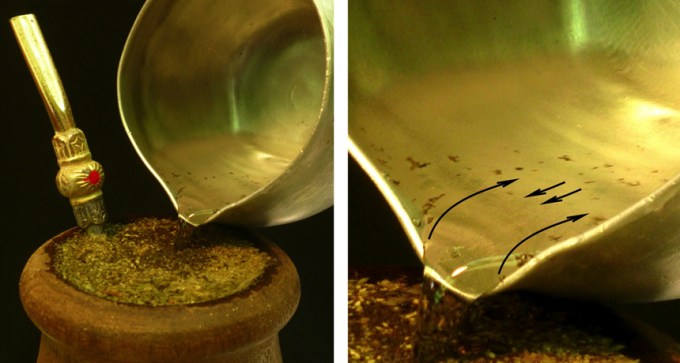Science News Magazine: Current Issue
Vol. 184 No. #2
Trustworthy journalism comes at a price.
Scientists and journalists share a core belief in questioning, observing and verifying to reach the truth. Science News reports on crucial research and discovery across science disciplines. We need your financial support to make it happen – every contribution makes a difference.
More Stories from the July 27, 2013 issue
-
 Archaeology
ArchaeologyAncient Siberians may have rarely hunted mammoths
Occasional kills by Stone Age humans could not have driven creatures to extinction, researchers say.
By Bruce Bower -
 Astronomy
AstronomyHubble finds hints of a planet oddly far-flung from its star
If confirmed, the dark gap in space debris will challenge astronomers' theories.
By Andrew Grant -
 Health & Medicine
Health & MedicineEbola thwarted in mice by drugs for infertility, cancer
Extensive search of existing medicines turns up two that seem to fend off deadly virus.
By Nathan Seppa -
 Life
LifeCabbage circadian clocks tick even after picking
Daily cycles in vegetables help ward off hungry caterpillars.
-
 Particle Physics
Particle PhysicsFirst four-quark particle may have been spotted
If confirmed, the tetraquark could shed light on how atomic nuclei are held together.
By Andrew Grant -
 Earth
EarthCleaner air may have brought more storms
Pollution during the 20th century appears to have suppressed North Atlantic hurricanes.
-
 Astronomy
AstronomyCradled galaxies betray violent past
Hubble snaps ‘the Penguin’ and its egg-shaped companion.
-
 Animals
AnimalsElephant diets changed millions of years before their teeth
The animals fed on grasses long before their molars could grind the tough plants.
By Erin Wayman -
 Health & Medicine
Health & MedicineA wobble of the noggin reveals the workings of the heart
Pulse can be measured by examining a video of subtle head motions.
By Meghan Rosen -
 Animals
AnimalsLemurs’ group size predicts social intelligence
Primates that live with many others know not to steal food when someone is watching.
-
 Life
LifeAncient horse’s DNA fills in picture of equine evolution
An entire genome compiled from a 700,000-year-old bone yields new information about equine history.
-
 Health & Medicine
Health & MedicineNo link found between vaccines and nerve-damaging condition
Recently immunized people are not at an increased risk of developing Guillain-Barre syndrome, a nerve-damaging condition.
By Nathan Seppa -
 Life
LifeGenes in wheat relatives help stave off stem rust
Wild and obscure species provide resistance to deadly fungus.
-
 Tech
TechTwisted light transmits more data
Spiral beams allow multiple information streams in one cable.
By Andrew Grant -
 Earth
EarthFaults can reseal months after quakes
Measurements in southern China find quick healing of fractured rock.
By Erin Wayman -
 Archaeology
ArchaeologyPre-Inca empire tomb found untouched in Peru
Gold jewelry, bronze axes and dozens of bodies were among the contents of the Wari empire ceremonial room.
By Bruce Bower -
 Physics
PhysicsParticles defy gravity, float upstream
Inspired by tea leaves’ reverse route into a kettle, physicists demonstrate that water’s surface tension allows unexpected movement.
By Andrew Grant -
 Health & Medicine
Health & MedicinePeople may have evolved to fight cholera
People in Bangladesh have genetic variations that might defend against the disease.
By Nathan Seppa -

-
 Neuroscience
NeuroscienceFinding the brain’s common language
Erich Jarvis dreams of creating a talking chimpanzee. If his theories on language are right, that just might happen one day.
By Erin Wayman -
 Health & Medicine
Health & MedicinePermanent Present Tense
The Unforgettable Life of the Amnesic Patient, H. M. by Suzanne Corkin.
By Susan Gaidos -
 Earth
EarthTaking Antarctica’s temperature
Frozen continent may not be immune to global warming.
By Erin Wayman -
 Neuroscience
NeuroscienceMemories lost and found
Drugs that help mice remember reveal role for epigenetics in recall.
By Susan Gaidos -

Letters to the editor
European family ties are knotty I have trouble understanding “Europeans are one big family” (SN: 6/15/13, p. 8). It says that every person living in Europe today shares a common set of ancestors. First, what does “set” mean? “Set” implies there are certain common characteristics of the members, but people living in Europe 1,000 years […]
By Science News -
 Genetics
GeneticsChromosome Variations
Excerpt from the July 27, 1963, issue of Science News Letter
By Science News -

